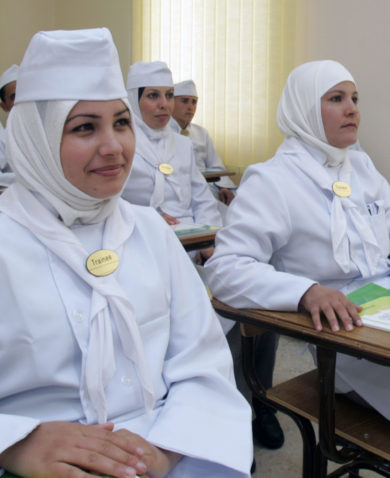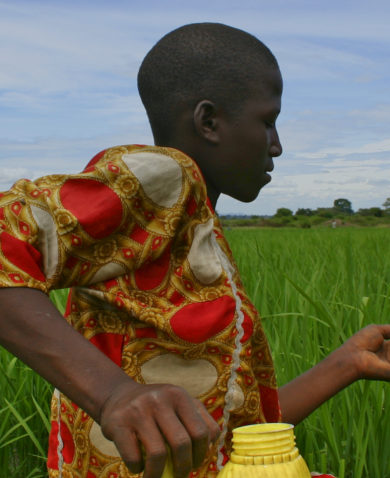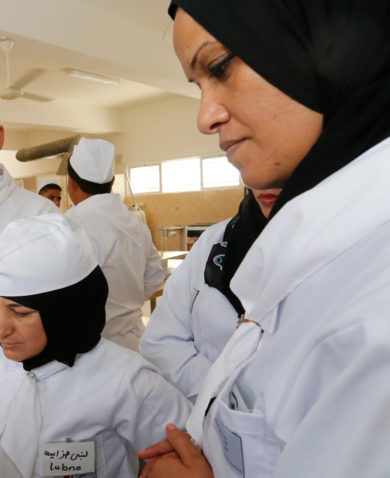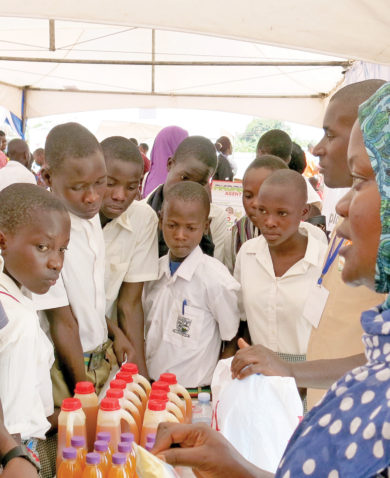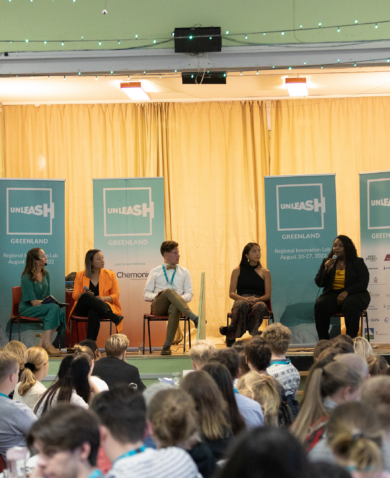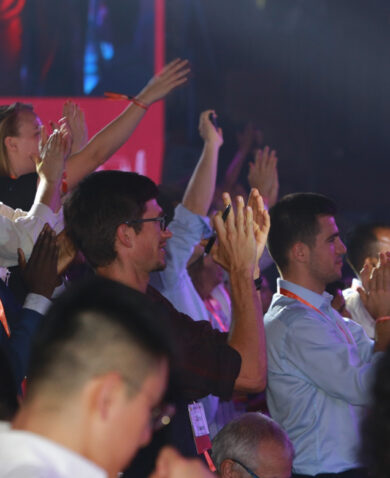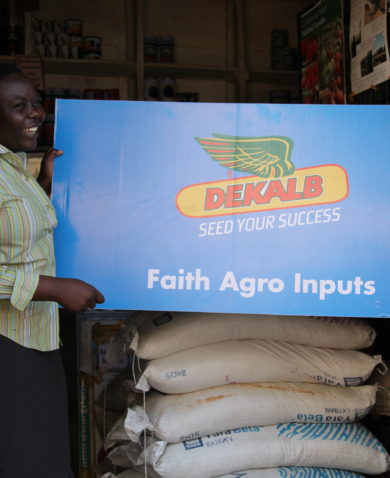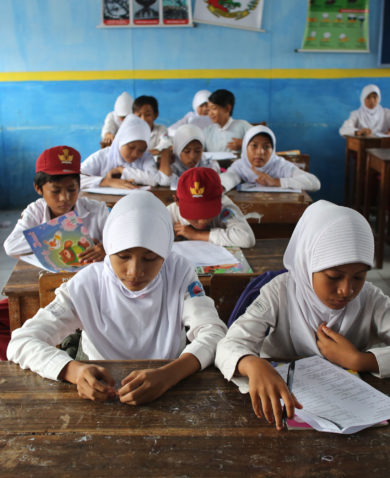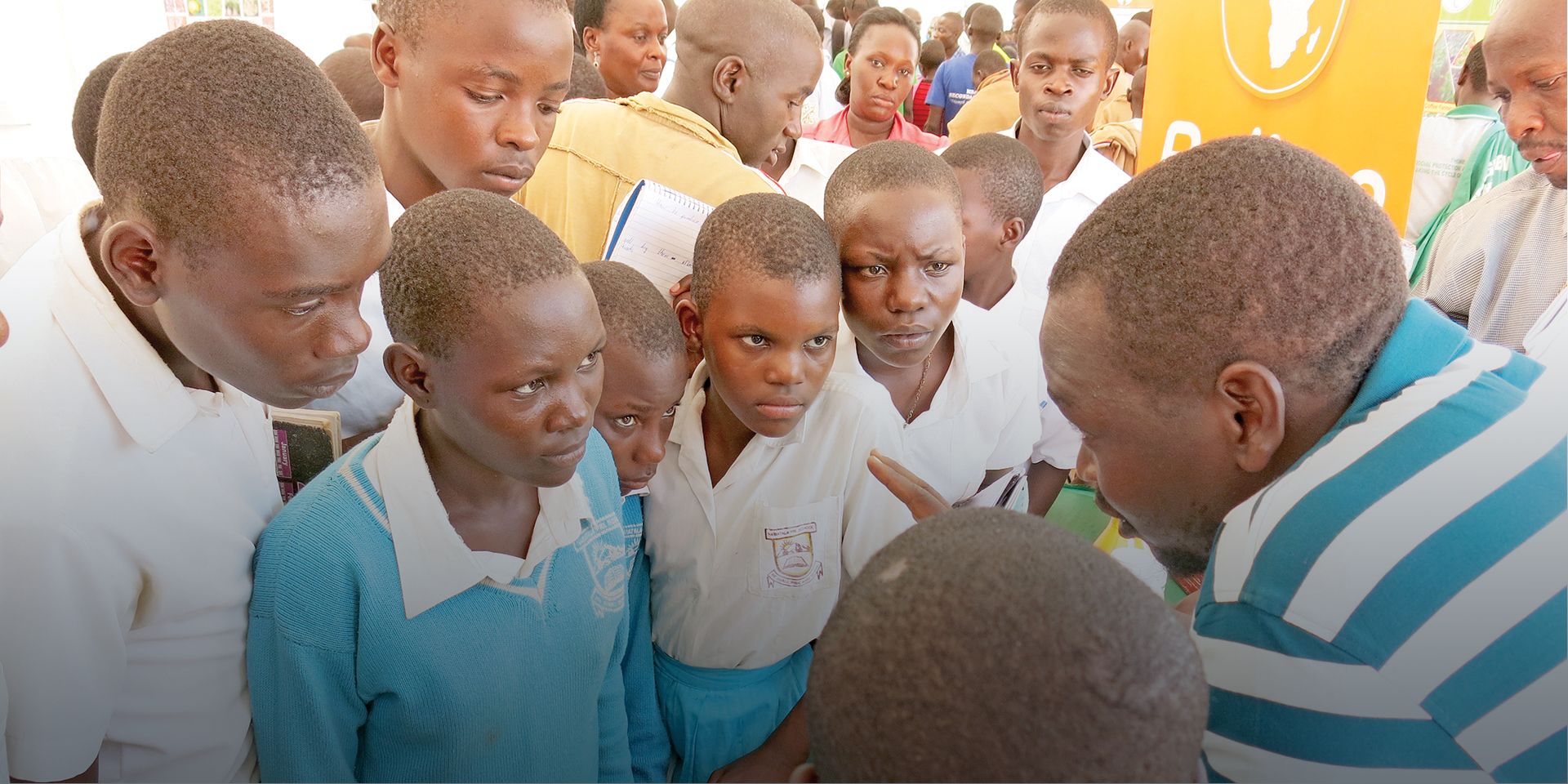
3 Questions with Gratian Nareeba and Fatuma Namutosi: Economic Opportunity for Youth
July 27, 2017 | 4 Minute ReadUganda has one of the youngest populations in the world, and unemployment among youth is high. Here, two young Ugandans discuss a sector with the potential to change that calculus.
In this blog series highlighting youth economic opportunity, these young entrepreneurs reflect on their experience with youth-led private sector development.
Can you tell us about your background working in youth development and your career goals?
Gratian Nareeba: As an entrepreneur and a market systems development scholar, I am passionate about inclusive growth and market-driven social and economic transformation. Since 2010, I have been at the center of initiating innovations, designing and testing prototypes, mentoring start-ups, and nurturing youth-led economic initiatives. These initiatives embrace technological advancements, create jobs, increase incomes, address community challenges, and produce essential goods and services in hard-to-reach and vulnerable communities of East Africa. With a specific focus on young people as agents of market growth and transformation, these youth engagement initiatives place young men and women in a leadership position to champion development in their communities. From a market development perspective and as a professional economist, my goal is to foster an inclusive, youth-led, and private sector-driven functional market economy in the agriculture and information and communications technology sectors.
Fatuma Namutosi: I am the managing director of Byeffe Foods Company Limited, a food processing company involved in agricultural value addition on mainly pumpkins, but also corn, soya, rice, and millet. Byeffe was established to serve as a living example for youth to realize the underlying opportunities in the agriculture sector. The company is located in eastern Uganda and has been in operation since 2015. Our products include nutritious pumpkin soya flour, pumpkin millet flour, rice flour for porridge, and also pumpkin leaves for a quick sauce. Our company also creates jobs through on- and off-farm activities for thousands of youths who have yet to unlock the potential of agriculture and still suffer from unemployment. In addition to supporting youth in product and market identification, we also share entrepreneurship skills that enable them to do cost-benefit analyses.
What do you see as the biggest opportunity and the biggest challenge for you as youth entrepreneurs in Uganda? What do you see as the biggest opportunity and challenge for the “future of work” in Uganda?
Gratian Nareeba: Uganda has one of the youngest populations in the world, with 77 percent under 30 years old. But it has an increasing youth unemployment rate that is even higher for those with formal degrees and dwelling in urban areas. Research has shown that the majority of urban youth are not willing to undertake opportunities in the agriculture sector, although the sector employs more than 70 percent of the population. There is a negative attitude toward agriculture, a preference for white collar jobs, and limited skills and access to essential resources like land and capital. As an agri-entrepreneur and development practitioner, I believe agriculture provides the most exciting economic opportunities for youth. However, youth engagement in agriculture is inhibited by limited access to productive resources and technologies. Young men and women don’t own land and other assets that financial institutions require for agricultural financing. Youth-friendly financial services are inadequate. This makes initial agricultural investments costly and prevents most youth, particularly women, from harnessing profitable opportunities. But there are many ongoing agriculture initiatives and strategies in Uganda. There is also a general change in perception about youth by all market actors, who now see youth as champions of social and economic development rather than as a social problem. With the right enabling environment and the continuation of these opportunities, the future of youth leadership in agriculture-led development is bright.
Fatuma Namutosi: A challenge for the “future of work” is that youth — Uganda’s biggest population — fear engagement with the agriculture sector. They need to undertake a cost-benefit analysis that will help them see the benefit of doing farming as a business. There are negative aspects, such as pests and diseases, inadequate markets, expensive farm inputs, and the price fluctuation of farm produce. These all make youth shy away from farming, but production feeds into processing and is an important part of the value chain. With a better understanding of agricultural value addition and with thorough research on product and market information, youth can finally embrace this sector.
How has your relationship with the Feed the Future Uganda Youth Leadership for Agriculture Activity (YLA) helped you work toward your goals as an entrepreneur?
Gratian Nareeba: YLA has provided a unique opportunity for me to build a gender-focused, youth-led development strategy for inclusive economic growth through agriculture. Through YLA, I’ve attended various trainings on gender and social inclusion, gained exposure to innovation platforms and agribusiness incubation centers, and learned valuable business and management tools. All of these tools and resources have enhanced my understanding of gender and social inclusion. My conventional knowledge of women as the most vulnerable gender group has now expanded to include children, trafficked humans, and people with disabilities as equally susceptible groups. I strongly believe that these opportunities for training and exposure will enrich my skills, passion, and competencies to champion youth-led market systems and inclusive growth.
Fatuma Namutosi: Our relationship with YLA has helped us create platforms that lift the image of Byeffe Foods Company and our products. We now have an enabling environment for networking that has led to an increase in sales of our products. YLA also provided the technical and financial support for us to reach a production capacity of over 768 tons of fresh pumpkins per year. This produce is procured from over 5,000 youths within Mbale District, and with it, we are able to produce over 10,000 metric tons of finished products annually. Through our grant from YLA, we have also acquired a solar tunnel dryer for fresh food, which will allow us to train youth in post-harvest handling and value addition. Before, our low-technology dryer would produce 5 kilograms of dried pumpkins every 48 hours. Now, the company will be able to produce 50 kilograms.









